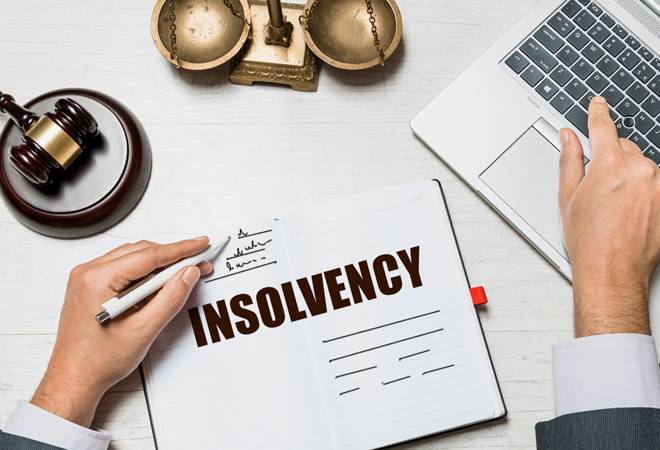The Insolvency Practitioner PDFs
Indicators on Insolvency Practitioner You Should Know
Table of ContentsThe smart Trick of Insolvency Practitioner That Nobody is DiscussingAn Unbiased View of Insolvency PractitionerSee This Report about Insolvency PractitionerInsolvency Practitioner - An OverviewThe Of Insolvency PractitionerInsolvency Practitioner for BeginnersInsolvency Practitioner - Truths
Insolvency is when responsibilities are greater than the value of the business, or when a borrower can not pay the financial obligations they owe. A business can become insolvent because of a variety of scenarios that bring about bad money flow. When confronted with bankruptcy, an organization or person can speak to creditors straight and restructure financial debts to pay them off.Organization proprietors might call creditors directly and restructure debts right into more workable installments. Financial institutions are usually responsive to this approach due to the fact that they want to be settled and avoid losses, even if the settlement is on a delayed schedule.
An Unbiased View of Insolvency Practitioner
The proprietor produces a proposition outlining how the financial obligation might be restructured making use of price reductions or various other strategies for support. The proposition reveals creditors exactly how business might create enough cash flow for profitable operations while paying its debts. Usually, a forgiven financial obligation may be considered revenue by the Internal Revenue Solution (INTERNAL REVENUE SERVICE).

All About Insolvency Practitioner
When procedures cease, so does the company's earnings (Insolvency Practitioner). Some firms become insolvent because their goods or services do not evolve to fit consumers' transforming requirements.
Expenses exceed incomes and expenses continue to be unpaid. Cash-flow insolvency happens when a company has the properties to cover their financial debts yet they are in the wrong type, such as genuine estate instead of liquid funds. Balance-sheet insolvency, on the various other hand, shows an absence of assets in any type of type to cover debts.
The IRS states that an individual is financially troubled when the complete liabilities go beyond complete possessions. A bankruptcy, on the other hand, is a real court order that shows just how a financially troubled person or company will pay off their creditors, or how they will certainly offer their properties in order to make the settlements.
Insolvency Practitioner Fundamentals Explained

Recognizing the aspects that can lead to bankruptcy, such as overspending, can help you prevent bankruptcy and its repercussions.
The Definitive Guide to Insolvency Practitioner
It is well known that supervisors and police officers of corporations (and supervisors of restricted liability companies) owe fiduciary tasks to their organizations and their shareholders (or members). These fiduciary commitments are defined by state statutes and, though there are variants from one state to another, they generally consist of an obligation of loyalty and a duty of treatment.
The obligation of care calls for supervisors and police officers to exercise diligence, to make informed decisions, and to see this act in great confidence to make sure that their actions are in the very best rate of interest of the firm. Beyond the scope of this discussion, some states enable these obligations to be restricted either by so keeping in mind in the business papers or abiding with various other demands.
How Insolvency Practitioner can Save You Time, Stress, and Money.
A lot of states define bankruptcy in two ways( 1) when a firm's responsibilities come to be above the sum of its assets or (2) when the firm ends up being unable to pay its find out debts as they end up being dueand welcome both meanings (Insolvency Practitioner). The change in responsibilities takes place due to the fact that when a business is bankrupt, there is no worth in the company past that owed to the business's financial institutions to ensure that the equity holders no more have an economic risk in the company
Take care regarding giving investors preferential therapy at the expenditure of lenders (e.g., accrediting and moneying a dividend or a supply redemption). Take care concerning advantageous therapy in between courses of investors. Make affordable initiatives to find out all the truths before taking a certain strategy; directors ought to really believe that any decisions made remain in the ideal interests of the corporation in its totality (i.e., choices will be examined in hindsight in light her response of the result of such activities on the firm).
In any type of personal bankruptcy or bankruptcy case, repayments made to certain lenders at the expense of various other creditors can be clawed back, particularly if there is some link in between the business and the financial institution. Take into consideration recommending at an annual shareholder meeting (or any various other conference of investors) a resolution verifying that all prior organization decisions and actions taken by the directors and police officers of the company were absorbed excellent faith after a workout of practical care.
6 Easy Facts About Insolvency Practitioner Explained
Totally disclose any personal or business partnerships with parties on the other side of transactions involving the company to stay clear of the appearance of a problem of rate of interest. In examining possible fund elevating transactions or a sale of properties of the troubled corporation, know that these purchases might be looked at later because of any kind of subsequent expansion of directors' fiduciary tasks to consist of creditors.